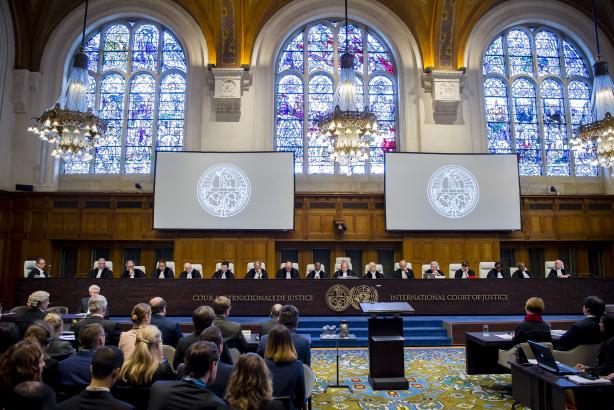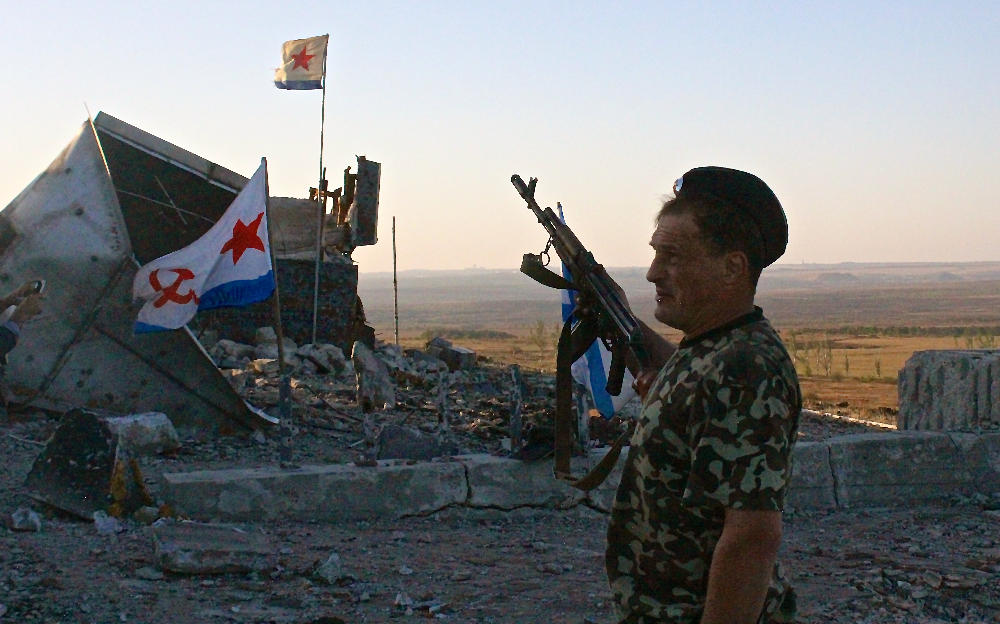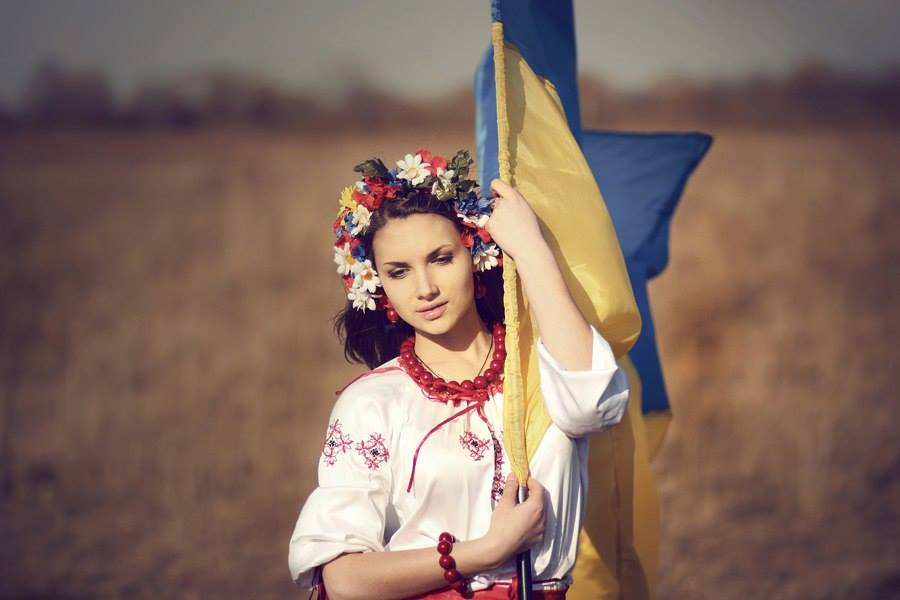Last week Kyiv began its fight in the courts. Ukrainians and Russians faced each other at the UN International Court of Justice (ICJ) in The Hague, where Ukraine is accusing Russia of violating the International Convention for the Suppression of the Financing of Terrorism (Convention on Financing Terrorism) and the International Convention on the Elimination of All Forms of Racial Discrimination. (Convention on Racial Discrimination).
Kyiv is accusing the Russian Federation of supporting terrorist activities in Ukraine since 2014, including training and funding fighters as well as supplying heavy weapons. These actions by the Russian Federation have led to a series of terrorist acts: the shooting down of MH17 Malaysian Airlines flight MH17, the shelling of the bus near Volnovakha and the residential areas of Mariupol, Kramatorsk, Avdiivka and others.
As for the Convention on Racial Discrimination, Kyiv is accusing Russia of conducting a policy of Russification and systematic discrimination against Crimean Tatars and Ukrainians. Ukraine’s goal at the ICJ is not only to obtain financial compensation and the recognition of Russia’s guilt in violating the two conventions, to end Russia’s support of the militants, and to prevent the persecution of Ukrainians and Crimean Tatars. Through the court Ukraine also wants to force Moscow to pay dearly — both financially and politically — for the occupation of Ukrainian territory and the unleashing of war.
We will note especially that in the lawsuit that Kyiv submitted to the ICJ there is no question of Russia’s occupation of Crimea nor of Russia’s aggression in Ukraine, even though the legal case concerns the consequences of the actions by the Russian state. The ICJ in this case does not have the authority to consider these issues. That is why the lawsuit does not call Russia the aggressor and does not raise questions about the legality of the annexation of Crimea.
This, in fact, is the reason why the lawsuit has generated much criticism among a number of politicians and lawyers: “Ukraine’s lawsuit is strange in its naïveté and artlessness” is a typical comment. But are these impartial appraisals of the work of the Ukrainian delegation and its partners from the Covington & Burling law firm justified? We don’t think so.
At one time, Ukraine had proposed to Russia to examine the legality of the annexation of Crimea by the Russian Federation within the framework of the ICJ, for example. Moscow, for some reason, refused even though it keeps declaring on all the forums of the world that everything has been done legally in Crimea. Moreover, neither Ukraine nor Russia have adopted the Rome Statute of the International Criminal Court (ICC) and therefore are not parties to the International Criminal Court (The ICC has the jurisdiction to prosecute individuals for the international crimes of genocide, crimes against humanity, and war crimes. It is not to be confused with the International Court of Justice — Ed.) . Ukraine can defend its rights only when it comes to certain international agreements where Kyiv and Moscow have recognized the jurisdiction of the International Court of Justice. There are only three such agreements: the United Nations Convention on the Law of the Sea, Convention for the Suppression of the Financing of Terrorism, and the Convention on the Elimination of All Forms of Racial Discrimination. The violation of these agreements represents only a segment of Russia’s aggression against Ukraine. But the lawyers have limited choice.
Furthermore, Kyiv fears that Ukraine may be denied on formal grounds, as was the case with Georgia, which brought an action against Russia under the Convention on Racial Discrimination. Let us remember that in 2011 the ICJ ruled only on the basis that the Georgians had not fully adhered to all the necessary pre-trial procedures and had not put forth sufficient effort to resolve the dispute peacefully.
At The Hague everything is hanging by a thread. Because if Kyiv also demands that Russia be recognized as the aggressor or that the status of Crimea be decided under the Convention on Financing Terrorism or the Convention on Racial Discrimination, there is a strong possibility that the court will deny Ukraine still during the stage of determining its jurisdiction. As a result, Ukrainians may receive an additional slap from the Russians and read additional postings expressing bewildered and angry outrage in the Ukrainian segment of Facebook: “How is this possible…”
However, the consideration by the ICJ of its jurisdiction and the merits of the case are still far away. So far, only hearings have taken place in The Hague, during which Ukraine petitioned for the introduction of temporary measures. The ICJ rules permit temporary measures because the consideration of a case can drag on for years and these measures, ideally, should not only prevent the deterioration of the situation but also improve it.
The petition to introduce temporary measures is a preliminary question for the ICJ. Whatever its decision, the case is expected to continue after the decision by the ICJ to establish a schedule for the consideration of the merits. If the Russian Federation puts forward its objections to the jurisdiction of the ICJ, the court is expected to hold hearings on the objections before the hearings on the merits. Thus, it is possible that the International Court could decide to consider the question on racial discrimination while rejecting the convention on the financing of terrorism.
Chronologically, the entire process may have this appearance. The ICJ may declare its decision in 1-2 months. The next stage in the process is the question of jurisdiction: the court will decide if it has the right to consider this dispute between Ukraine and Russia. The documents will be submitted in nine months, followed by oral hearings, which will last about two years. Then the court will move to consider the case on its merits.
The temporary measures discussed by Kyiv are as follows. Ukraine asks the court to compel the Russian Federation to refrain from any actions that can broaden or narrow the subject of the dispute; to exercise proper control over the Russian-Ukrainian border with the goal of stopping the supply of weapons; to stop and prevent the supplying of money or arms to the groups that are carrying out terrorist attacks, to take all possible measures to influence the groups it supports in order to prevent the carrying out of terrorist attacks against the civilian population; to refrain from any racial or ethnic discrimination in Crimea; to allow the activity of the Mejlis of the Crimean Tatar People; to stop the violent abductions of the representatives of the Crimean Tatars; to stop the restrictions on education in the Ukrainian language.
But even if the court agrees to Ukraine’s request for provisional measures, it is still unlikely that Kyiv’s hopes will come true and that it will be possible to protect the residents of Crimea and also to stop the deliveries of Russian weapons to the Donbas. Many lawyers agree with the well-known specialist in international law Dr. Volodymyr Vasylenko who doubts that if the Ukrainian request is accepted (a decision that would have the character of an international obligation) that Russia would carry out the verdict of the court. And neither the political nor legal consequences of such a decision would stop the Kremlin.
Why then should Kyiv raise the issue of interim measures? And why, in fact, go to court if there is the strong likelihood that Russia will not abide by the decisions of the ICJ. There are several reasons.
Ukraine should go to the ICJ regardless of the court’s decision if only to show that Ukrainians will defend their rights in court. A decision to not go to court would be a signal for the international community that Kyiv has accepted the annexation and occupation of Ukrainian territory. And if the court decides in Ukraine’s favor, Ukraine must demand that the Russian Federation abides by the decision of the court. This could include the seizure of Russian state assets abroad.
In this respect, Dr Kateryna Busol, attorney with the Global Rights Compliance human rights advisory service, refers to the high-profile case “Nicaragua against the United States” in her article in LB.ua. In 1986 the ICJ ruled that the US was guilty of supporting armed groups in Nicaragua and awarded compensation. The US was outraged, withdrew from the process and blocked the relevant resolutions in the UN Security Council. Some might consider such a result as “betrayal.” But most jurists consider it as possibly the first small “victory” over a great power.
Additionally, if the court rules in favor of introducing interim measures, it will not only strengthen Ukraine’s position in all international negotiations but also strengthen the position of those who want to continue sanctions against Russia.
After all, each time that the European Union begins to discuss the continuation of restrictive measures against the Russian Federation for another six months, Ukrainian society worries. There is a strong pro-Russian lobby in the EU and there is always the threat that sanctions can be eased or lifted. A ruling by the court in favor of Ukraine would greatly strengthen Kyiv’s position with other European capitals in any discussion on sanctions.
Ukraine’s strength relies on facts. On irrefutable, conclusive, reliable facts. Only facts can counter lies and manipulation. But Kyiv needs to realize that court cases like the ones at ICJ are won not by individuals — even if they are experienced lawyers — but by a system, when all the elements of state machinery work for the same outcome.
Will the arguments by the representatives of the Ukrainian side — the Deputy Minister of Foreign Affairs Olena Zerkal, Yale Law School Professor Harold Koh, and also lawyers from the Covington & Burling law firm convince the ICJ judges? Or will ICJ heed the words of the Russians, who once again assured the world that events in eastern Ukraine were caused by an “armed coup,” that a “civil war” is raging in the country, and that there are no grounds to implement temporary measures, which will become a hindrance for the “ongoing Minsk process”?
In presenting its position to the judges, the Russian delegation (numbering 40 people) freely interpreted the provisions of the conventions, manipulated facts, and relied on false evidence invented by Russia itself. Thus, one of the representatives of the Russian Federation, the deputy director of the Department for Humanitarian Cooperation and Human Rights of the Ministry of Foreign Affairs of the Russian Federation, Grigoriy Lukiyantsev, argued that it was Ukraine and not Russia that for decades has oppressed and discriminated against the Crimean Tatars.
lya Rogachev, the head of the Russian Foreign Ministry’s Department for New Challenges and Threats, rejected charges that Russia is financing terrorism in eastern Ukraine and explained that the “rebels” had weapons because they had seized them from the Ukrainian army and also took them from weapon storage sites of the former Soviet army … in the mines.
Another representative for Russia, Mathias Forteau, Professor at the University Paris Nanterre, stated that Moscow had not received information of Kyiv’s protests against the ban of the Majilis. In his view, this indicates an unwillingness to resolve the conflict through negotiations. M. Forteau also stressed that the ban of the Majilis was caused exclusively by motives to combat extremism in Crimea.
In fact, Ukraine has repeatedly appealed to Russia on this issue. But during the speech by the Russian representatives, false accusations similar to the ones voice by M. Forteau were heard repeatedly. This is why the Ukrainian Ministry of Foreign Affairs decided to turn over to the ICJ all the diplomatic notes sent to the Russian side after the beginning of Russia’s aggression.
We will hope that the use of fake information in the arguments presented by the representatives of Russia will weaken Russia’s position in the eyes of the judges. However, in the hall of the International Court of Justice there were speeches containing more substance than simply the “news” generated by Russia Today.
According to international lawyers, carefully prepared arguments based on ” distorted logic,” were presented by the Essex Court Judge Samuel Wordsworth and the Director of the Potsdam Center for Human Rights (!) Andreas Zimmermann. In particular, A. Zimmerman said that the convention does not provide for the responsibility by states regarding terrorist financing. S. Wordsworth claimed that in Ukraine there is a state of armed conflict and casualties among the population are the inevitable victims of any armed conflict and are not at all the victims of terrorism. (Ukraine believes that the existence of armed conflict does not exclude acts of terrorism and cites, as example, the conflict between the US and ” Al Qaeda”).
In addition, S. Wordsworth said that Russia’s guilt in the crash of flight MH17 cannot be proven by the fact that the “Buk” missile had been brought in from Russia. In his view, what is important is the purpose of its delivery. Furthermore, he argued that during periods of armed conflict the Convention for the Suppression of the Financing of Terrorism does not prohibit Russia from sending lethal weapons to the armed groups that Russia supports in eastern Ukraine.
According to Ukraine’s representative Professor Harold Koh, by manipulating facts, the Russian delegation has displayed “a session of outstanding legal gymnastics” that “hides Russia’s belief that the international rules that apply to other nations simply do not apply to Russia.”
In a few months we will see to what extent these “legal tricks” turned out to be convincing for the members of the International Court of Justice at the UN.







